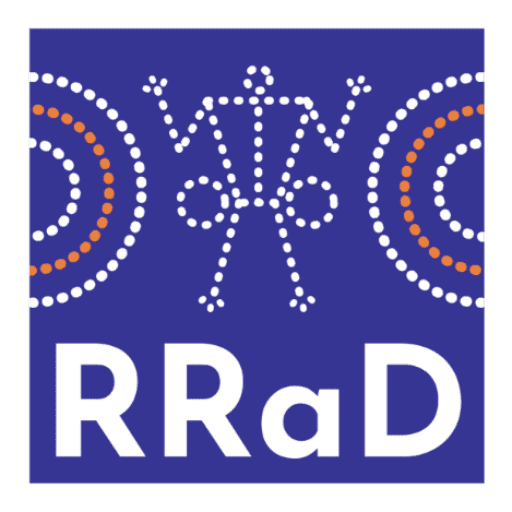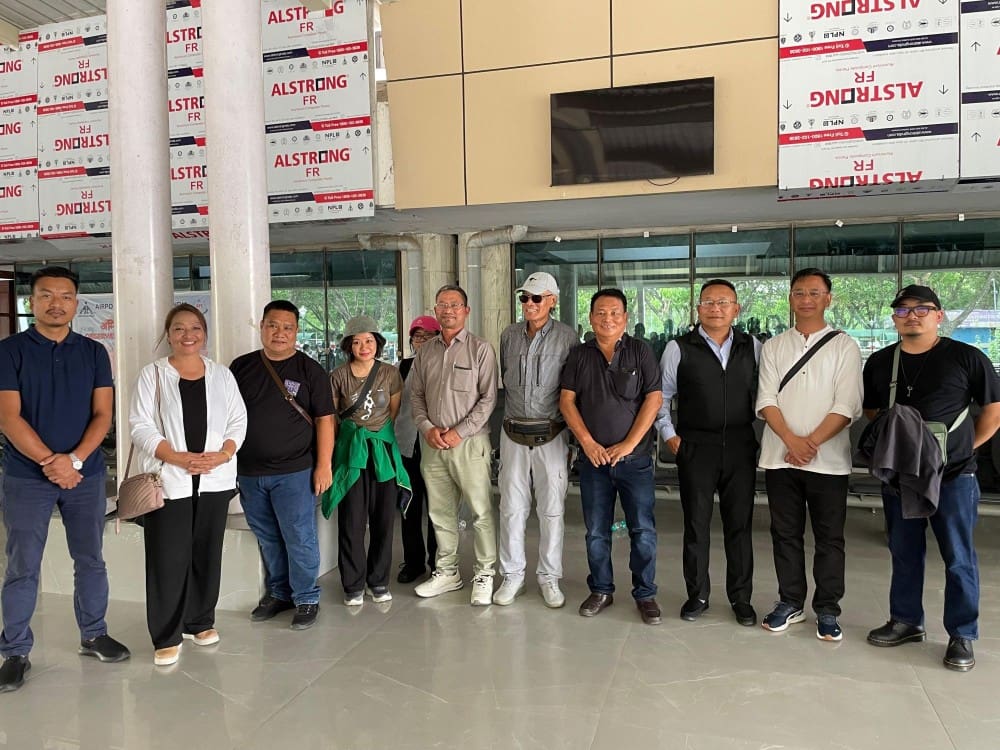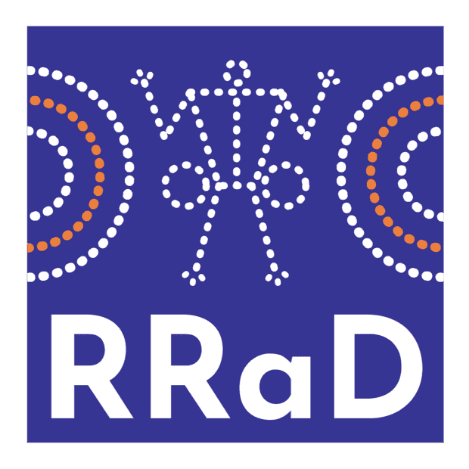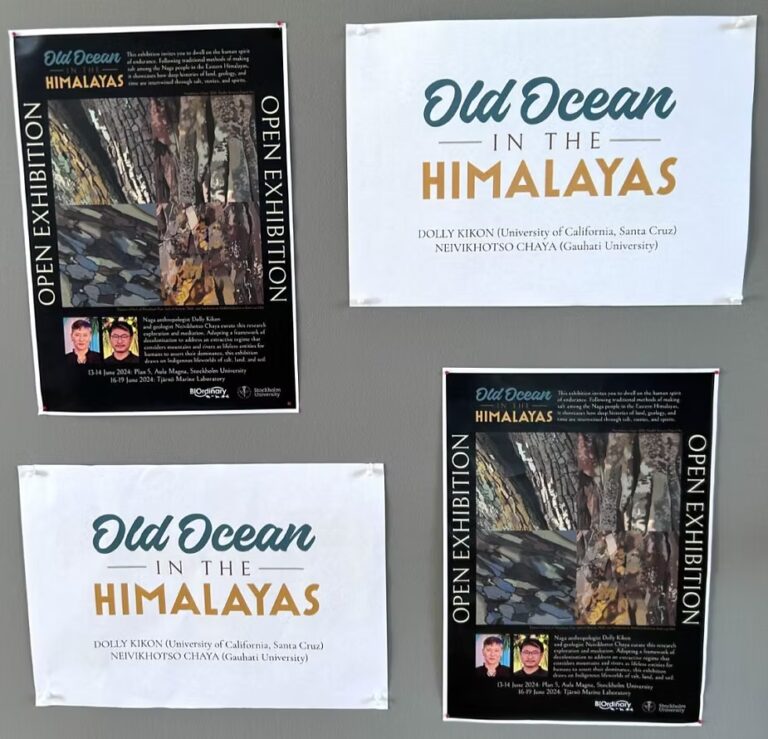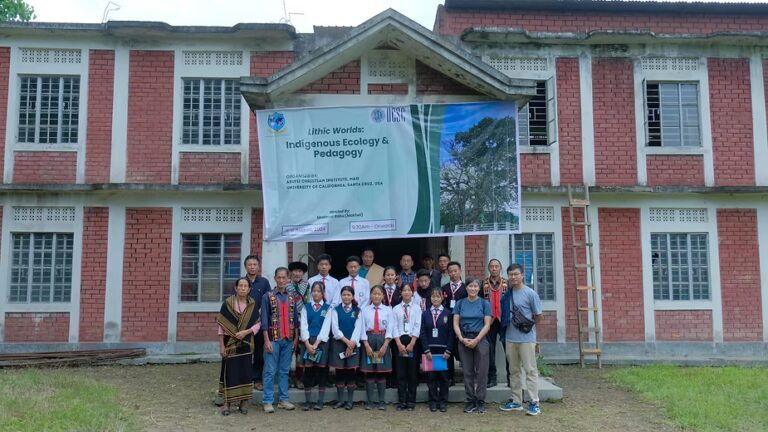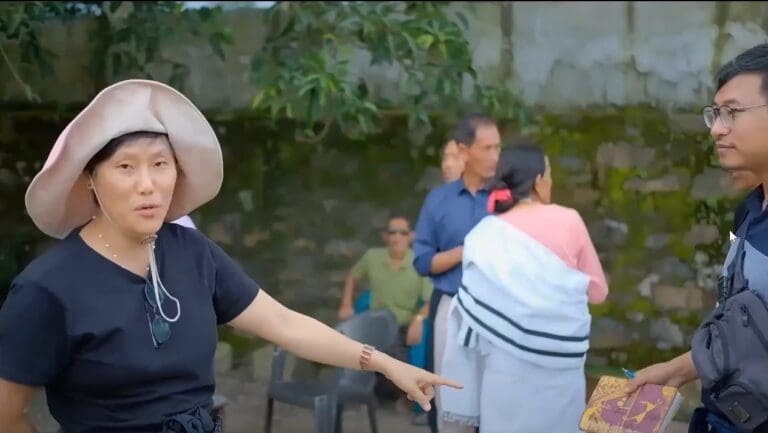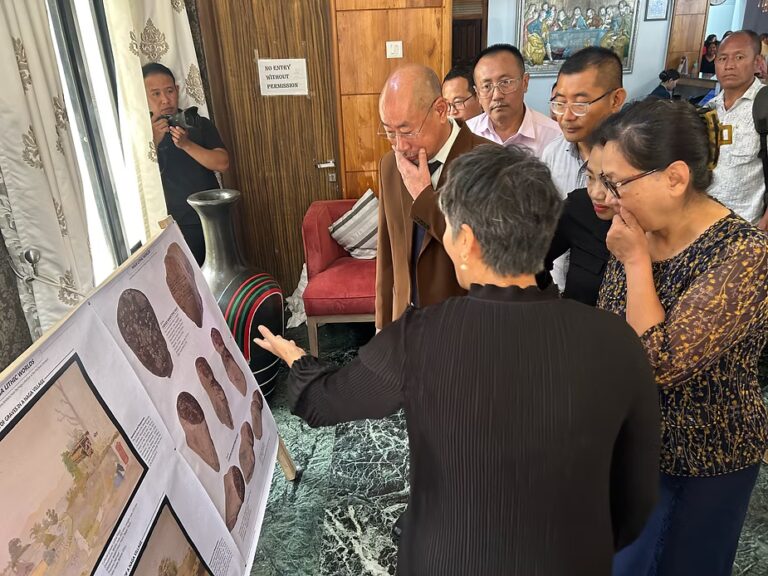Naga delegation returns after historic UK repatriation visit
Morung Express News
Dimapur | June 15
The Naga delegation under the Recover, Restore and Decolonize (RRD) team of the Forum for Naga Reconciliation (FNR) returned home today after a week-long visit to the United Kingdom to initiate the process of repatriating ancestral human remains housed at the Pitt Rivers Museum (PRM), University of Oxford.
Speaking upon arrival, Rev Dr Ellen Konyak Jamir, Coordinator RRaD, described the journey as a significant milestone in the collective Naga effort to recover their ancestral remains and confront colonial legacies through dialogue and cooperation with international institutions.
“We just got back after a weeklong of engagements in the UK, and we want to thank God for guiding us, for being with us throughout this process,” she said.
“We had a very, very meaningful time. It was a momentous occasion for the Nagas as a whole, and we want to thank the Naga people for the support rendered to us, and we are very proud of our tribal leaders here representing the different hohos.”
The delegation included tribal leaders and community representatives from various regions.
During their visit, they held formal meetings with the PRM authorities, participated in ceremonial events, and issued a declaration, The Naga Oxford Declaration on Repatriation, outlining the significance of the repatriation initiative.
The declaration marked the beginning of a long process that the team stressed is community-led and deeply rooted in Indigenous values.
“This is something very new for us,” Rev Dr Konyak noted, “The knowledge that our ancestral remains are exhibited in museums across the world, or they are boxed up, housed in museums, and they’re treated as specimens and collectibles, that has been news for us, and we have all been very shocked to hear, to know about this.”
According to the RRD team, the repatriation effort has been ongoing for five years, involving extensive outreach to Naga communities across districts, churches, educational institutions and civil society groups. The objective has been to build awareness and gather collective opinion on the matter.
“This is a process. We’re just beginning. Of course, as a RRD team, we have been engaged in this process for the past five years… and this is a community-led initiative,” stressed the RRaD Coordinator, adding: “So we want the opinion of our community… and the repatriation process is an international process, as you know, and so this will take some time.”
The PRM, which houses a collection of ancestral Naga remains dating back to the colonial era, was commended by the delegation for its willingness to engage in transparent and ethical dialogue.
“We especially want to extend our gratitude to the Pitt Rivers Museum for the invitation to come and have this dialogue and collaborate on this repatriation journey,” Rev Dr Konyak said.
“They have been a wonderful, and they are a wonderful institution to work with. We thank them for their willingness to engage with us Indigenous communities and repatriate the remains, and we also thank them and we acknowledge their courage to address difficult past histories and the dedication to this repatriation journey.”
She noted that any understandings made during the visit are documented in the public declaration issued by the team.
“We just published our declaration, and that is all is there in the declaration,” she said, in response to queries on formal agreements.
The team also acknowledged the financial and logistical support extended by the Art and Culture Department of Nagaland for facilitating the trip.
The RRaD Coordinator also reiterated her gratitude to the Naga people for the support as well as its team members spread over various Naga homelands.
The repatriation process is expected to continue over the coming months and years, as the RRD team works in collaboration with the museum, the Naga community, and international agencies to ensure the respectful return of their ancestors.
The Naga Oxford Declaration described repatriation as a process towards the healing and wholeness of the Naga people.
First published in The Morung Express June 15 2025
Link: https://morungexpress.com/the-naga-oxford-declaration-on-repatriation-1
